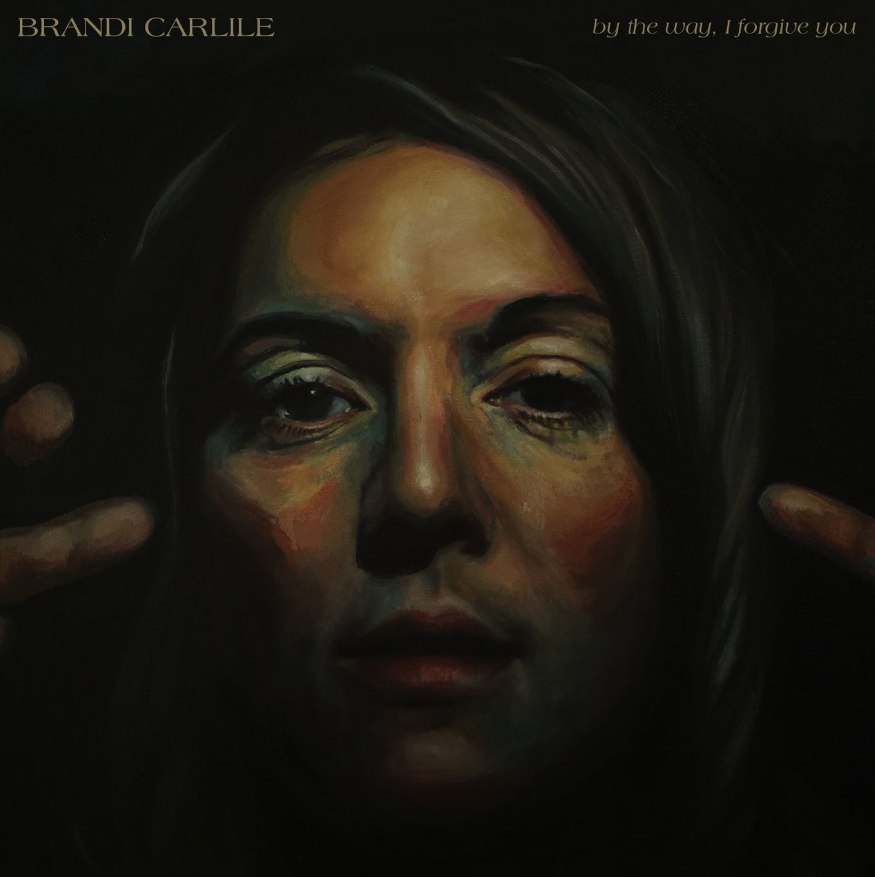Brandi Carlile works too hard on By The Way I Forgive You, and though sometimes this results in songs haunted by mourning, it also leads to songs that collapse into bathos. Often those bad songs are filled to the brim with diva theatrics, useless onomatopoeic choruses, overly melodramatic instrumental codas and vocals that overwhelm melody. Her previous work had a lithe, smart, NPR-folk aesthetic but was rarely as interesting as her obvious ambition. This is her sixth album, produced in part by Shooter Jennings, who has been weirder than this lately, including on a Giorgio Moroder cover album. The ambition or weirdness is absent here, but an excess of production still is. This rarely allows the listener to absorb any narrative. But when the pauses occur, By The Way I Forgive You becomes deeply moving.
Carlile seems to think that her audience is unable to understand what she is saying unless she is highlighting, underlining, and annotating every gesture. Her reading of the line “I’ve been to the movies,” on “The Joke,” rises in octave and volume, becoming a faux operatic bellow. That song ends with a long guitar solo, for no real reason. It is one of two or three such codas on the album: “Party of One” is another, and it ends the album with faux-romantic piano flourishes.
By The Way I Forgive You is a thicket of such flourishes. “Hold Out Your Hand” is a Marty Robbins-style Western story song, interrupted by an inspirational pop chorus; “Fulton County Jane Doe” tries to anthologize every singer songwriter in the last decade or so—a bit Sheryl Crow, a lot of Melissa Etheridge, a tiny bit of Dar Williams, some Avett Brothers—but the anxiety of influence precludes an interesting pastiche or a unique voice from emerging. This is confusing for an artist who has been playing for decades and has released half a dozen albums.
This confusion frustrates even more given that moments of genuinely great writing do emerge. Two songs–“Sugartooth,” about the perils of addiction, and “The Mother” about raising a daughter–boast writerly details, good narrative construction, and a rare tenderness. “The Mother” also hints at a queer domesticity. It’s nice to see such subtle transparency.
I like the idea of Carlile more than I do her final product. In that idea, there is often an excellent move here or there, and enough of a hook to convince me to listen to the next album. As a genre, folk often moves between telling small, personal stories and an explicit sort of protest-oriented politics. Though the domestic is political, it can also be solipsistic. Often, By the Way fails to balance the genre’s traditions–a tendency that, considering the current American political scene, produces a distinct anxiety of absence.





